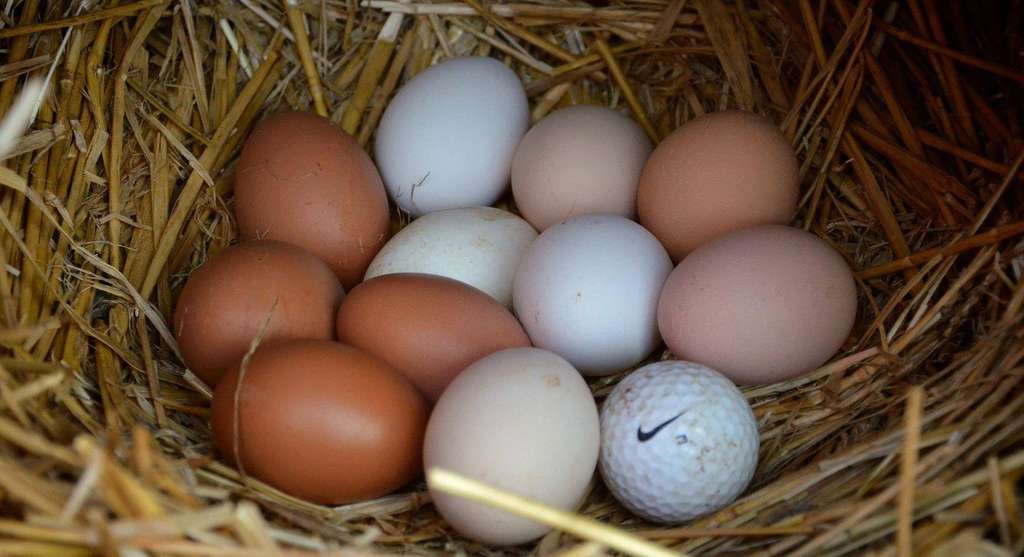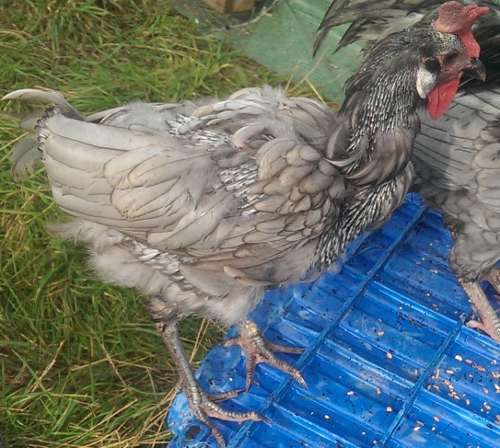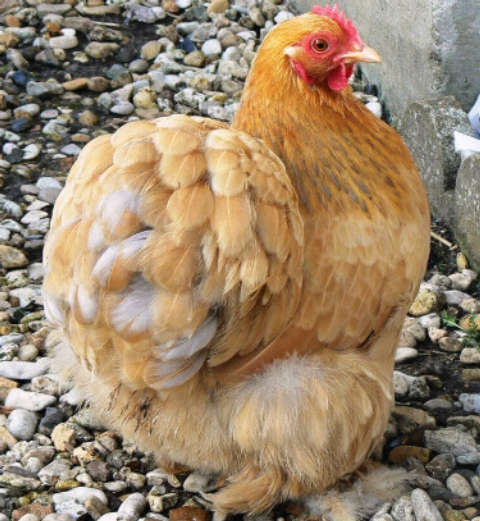11 reasons chickens stop laying eggs and what to do about it.

Table of Contents
Why have my hens stopped laying eggs?
Chickens and other poultry can stop laying suddenly at various times of the year, with no pattern or warnings that they are about to do so. Breaks in laying cycles can be quite natural and normal, some breeds are seasonal layers but sometimes your hens stop laying and you can do something about it.
Reasons hens stop laying eggs:
- Your flock is moulting.
- Hens have gone broody.
- The breed is a seasonal layer.
- Shortening days in the Fall or Autumn.
- Poor feeding, old or stale feed.
- Watering problems.
- Too many treats or scraps.
- Parasites.
- Disease.
- Ageing hens.
- Stress.
The moult: Hens often stop laying when they go through the moult. Moulting is something all chickens do, to some extent, every year towards the end of summer, normally between September and November.
Below: This Andalusian hen is quite tatty during her moult and will stop laying while she changes her feathers.

Some years a chickens may just lose one or two feathers and other years they may nearly go bald.Moulting is a metabolically expensive process that requires a lot of protein and energy to produce new feathers so the birds stop producing eggs for a few weeks while they grow new ones.
Broody hens stop laying: Broody hens always stop laying and may not go back to it for 6 to 8 weeks after they have been broody, even if you break them off the nest in a few days the barren period can persist for up to six weeks after.
On the plus side I normally find that hens that have been broody lay for a few more weeks later in the year and go through the moult later in the season.
Your chickens are a seasonal breed: When I first started I had a few hybrids and they lay almost every day, even in winter when the days are short they still seems to produce eggs.
When I got my first rare breed , I went for one that is well known as a winter layer, the Barnevelder, but they still produce a lot less eggs in winter. Later still I got my first Meat chicken, the la Bresse Gauloise and I was astonished how seasonal the egg production was. They just stopped at the end of September and didn't start again in toward the end of February.
Below: Pekins are very pretty but very seasonal layers.

All chickens are seasonal layers to some extent, My Rhode Island Reds only take around 6 weeks off during December and January.
The shortening days of Fall or Autumn: Chickens need 12 hours or more of daylight to produce eggs reliably and stop laying as there is less light and food around after the end of summer so it makes sense to conserve resources.
Chickens require 12 to 14 hours of day length to sustain egg production. Once day length drops below 12 hours, production will decrease and frequently stop. This happens naturally from October through to February. These would have been the lean times with little food so the chickens would have given their bodies a rest.
Improper nutrition or old and stale feed: Layers require a nutritious and balanced ration to be always available to keep healthy and sustain maximum egg production over time. Improper nutrition can occasionally cause hens to stop laying.
Inadequate levels of energy, protein or calcium can also cause a production decrease. Your laying hens need a constant supply of nutritionally balanced layer food balanced at 16% - 18% protein.
Feeding grit and oyster shell every day is also a good idea to help insure strong egg shells.
Watering issues: Lack of water is a common problem, particularly in summer or when it freezes in winter. Egg production may be affected in as little as six hours without water and the effect may last two weeks.
Too many treats and scraps: Feeding too many scraps can upset the balance of the feed your chickens get.
Below: Every keeper loves to treat their hens but too much is bad for them.
If you are giving them large quantities of carbohydrate, high protein or salty foods from your table then you could end up with unthrifty fat chickens, shell-less eggs or some other digestive problem like sour or impacted crop.
Parasites: Parasites can lead to all sorts of issues, a bad infestation of red mites can kill chickens by literally sucking them dry.
If you suspect your chickens have either external or internal parasites are present, get proper diagnosis and treatment and remember to treat the birds again to cover the life cycle of the parasite.
Disease: One of the first signs of disease is a drop in egg production. Other symptoms of disease include dull and listless appearance, watery eyes and nostrils, coughing, moulting, lameness and mortality in the flock.
Some death is normal over the period of a year in any flock. However, if you suspect a disease, contact a skilled veterinarian for help in examining your flock and get an accurately diagnosis and treatment.
Your best protection against disease is to buy healthy stock and keep them isolated from other birds. Buying adult poultry and introducing them to your flock is asking for trouble. If you wish to increase your flock, buy chicks from a reputable hatchery or hatch some of your own eggs. Adult birds can look healthy and carry diseases.
Ageing hens: Hybrid hens can lay for two full laying cycles before egg production slows and eventually stops. Rare breeds lay fewer eggs for longer but all old hens stop laying eggs.
After two or three years hens decline in productivity, this does varies from bird to bird.
Stress: Moving, handling, changes in environmental conditions or fright can contribute to or be the main cause for egg production declines. Common stresses include predators around the coop, even at night or thunderstorms.
Once the laying flock is happy and settled in the coop, limit unnecessary moving or handling. Switching roosters or changing to the population will disrupt the pecking order and cause some temporary social stress in your flock.
Try to limit the movement of excitable children, dogs, livestock and vehicles around your flock as well as loud noises to prevent frightening the hens.
Chickens do not handle damp, draughty conditions well. Prevent excessive exposure to wet, draughty conditions during colder months. Stood around in mud constantly is not good for the feet and transmits disease more easily.
What to do when your chickens stop laying eggs:
Getting your chickens to start laying again can be a bit of a problem as there is always a delay between your intervention and the hens producing eggs. This can leave you a little unsure as to whether your measures are having any effect.
To bring a flock of chickens back into lay, make sure they have no stress factors, parasites or diseases effecting them and ensure they are well fed and water with a quality pelleted chickens feed made for laying hens. If they have stopped because of short days or being broody then a little patience is the only treatment.
Old chickens that have stopped laying for good can be put to work as bug catchers, be culled from the flock in a humane way, cooked and eaten or used to teach young birds.
Other reasons you may be short of eggs:
- Predators or snakes are stealing or eating your eggs. There are plenty of creatures that like a fresh eggs as much as you do, Raccoons, snakes and even crows and magpies will steal eggs from the nest.Make sure the eggs aren't going missing after they have been laid.
- Egg eating hens in the flock.Thin shelled eggs can cause excessive egg breakage which often get eaten by the flock. Some birds turn to egg eating if there are deficiencies in the diet or calcium shortages. Some seem to do it just because it's easy to eat a nest full of eggs.
- Free range hens hiding the eggs. Hens hiding the eggs when able to run free is a common issue for backyard keepers. Sometimes hens like to find their own nests and they are well out of sight. Listen for the egg song and track them down that way.
